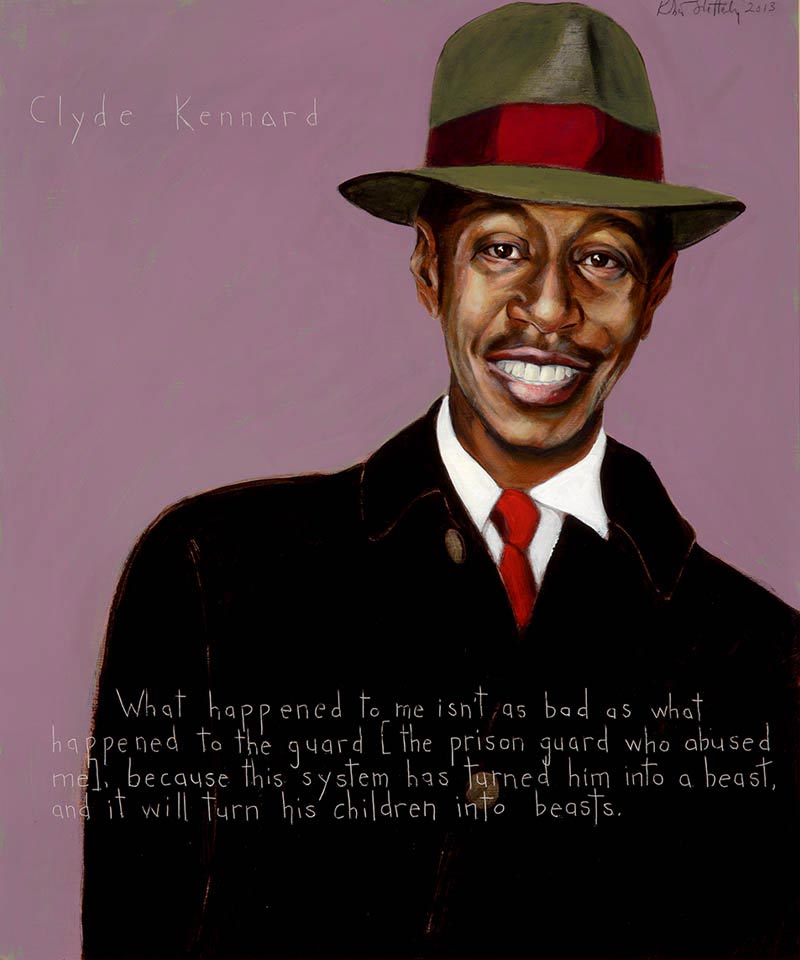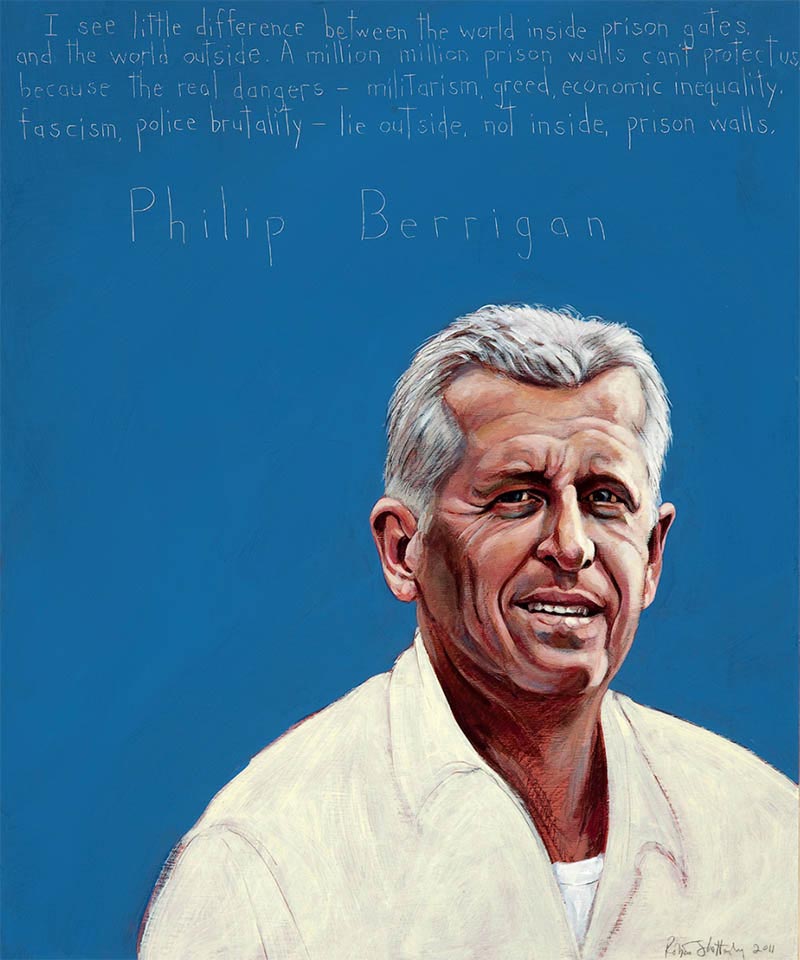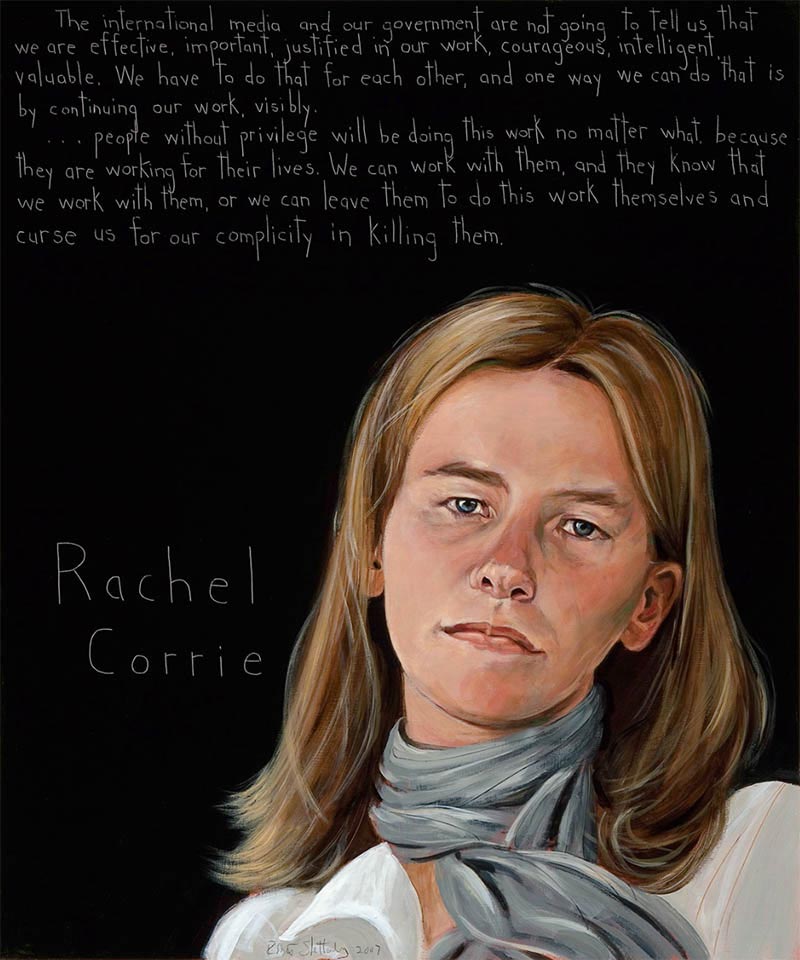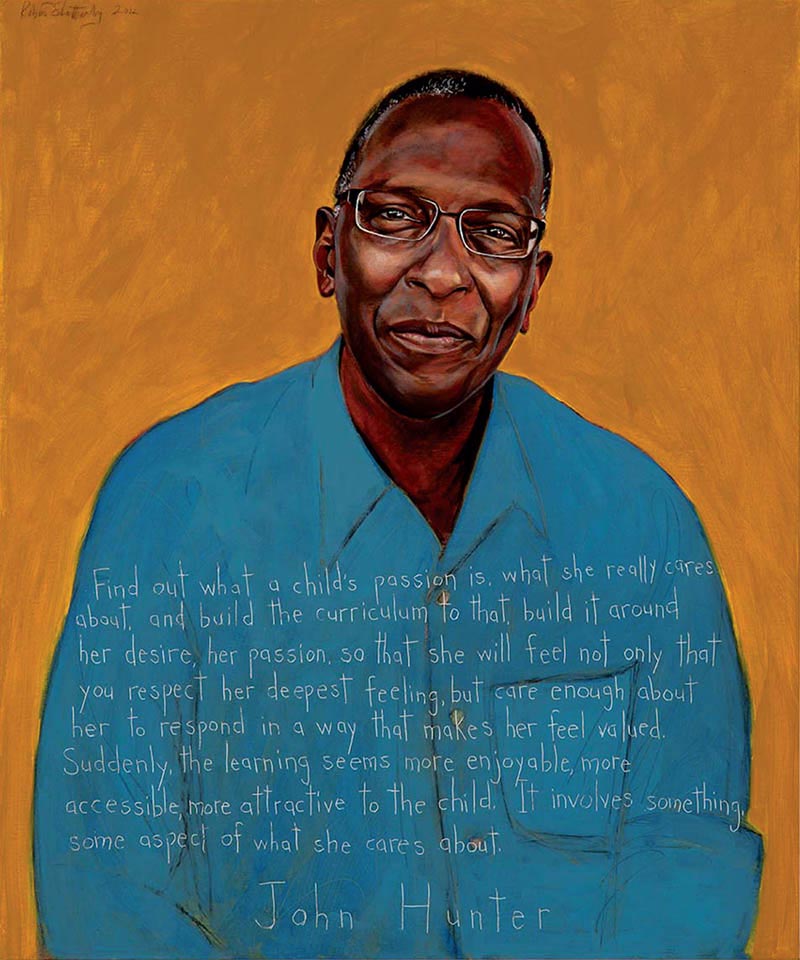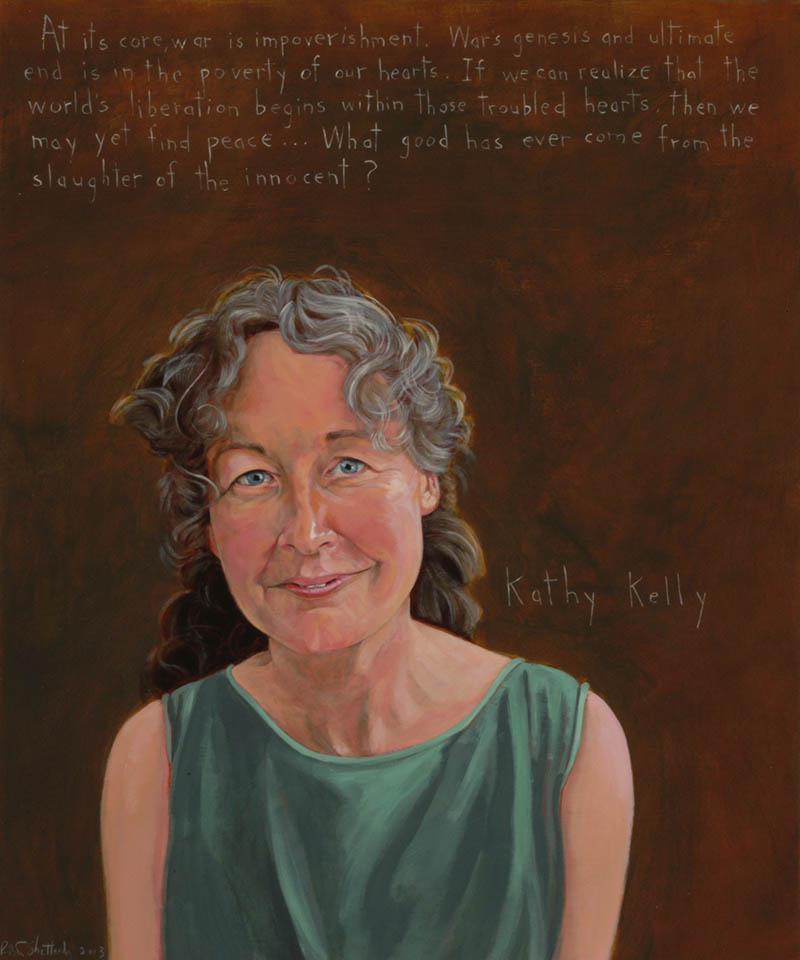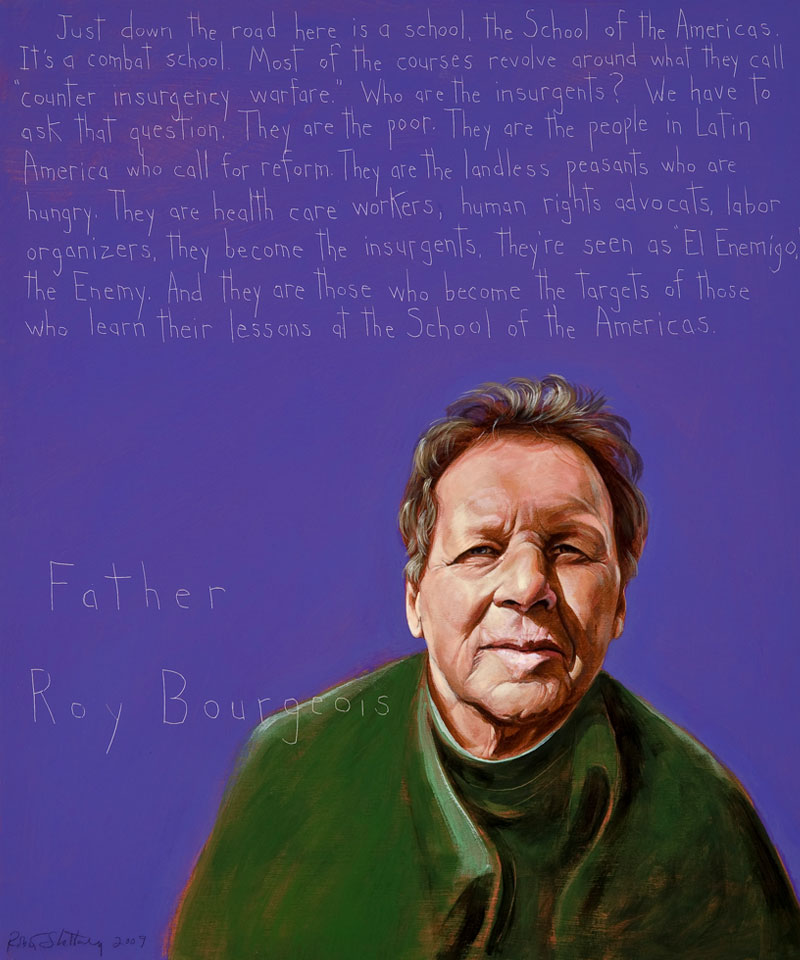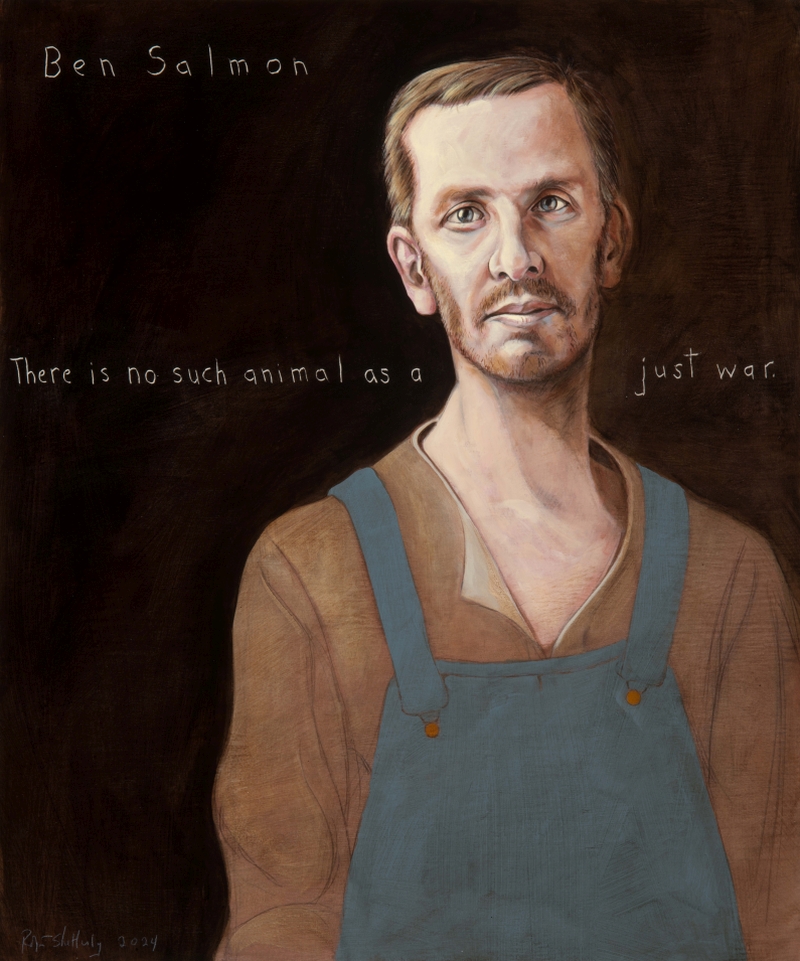
Ben Salmon
Conscientious objector; b. 1888
“There is no such animal as a just war.”
Biography
- 1898: As a boy, Salmon wanted to be a soldier and march off to the Spanish-American War.
- 1900: Went to work in a print shop at age twelve, which led him to union organizing.
- 1914: The Ludlow Massacre turned Salmon into a pacifist.
- 1916: Wrote a public letter to President Wilson, opposing U.S. involvement in WWI, and refused to sign a U.S. conscription form, for which he was sentenced to twenty-five years in prison.
- 1920: Salmon was sent from prison to a federal insane asylum, St. Elizabeth’s, then released on Thanksgiving Day.
- 1932: Still suffering from the traumas he endured during his incarceration, Salmon died at age forty-three.
As a young boy, Ben Salmon loved to hike the hills with his family west of Denver. He learned respect for all of nature from his father, a vegetarian who taught Ben that no living creature should be killed.
Many years later, imprisoned for his anti-militarism belief, he wrote: “As a young boy, I was quite a patriot. I remember well how proudly I took part in the school drills. One time, I was in a play, and much to my delight, I was chosen as a soldier. I was ten years old. I prized my uniform more than my life. I learned to sing patriotic songs. I read war books, and when the soldiers marched off for Spain [1898], I was broken-hearted to think I could not go with them.”
Ben noted how conflicted he was as he learned at home and at parochial Immaculate Conception School that the Old Testament command of “Thou shalt not kill” was reinforced by the New Testament teaching to “Love your enemies.”
Like many boys and girls from working-class families in the early 20th century, Ben left school at age twelve (in 1900) and worked in a print shop. Learning to type, he soon had good-paying jobs as a clerk who recognized economic injustices. His railroad company fired Ben for union organizing.
Ben Salmon edited a newsletter he gave away in the streets to address capitalism’s economic injustices. Ben supported the concept of a Single Tax. He ran for political office as a Single Tax candidate and lost. He ran and lost for office three times—state legislature, school board, and city council.
In April of 1914, the Colorado National Guard and private guards from the Colorado Fuel and Iron Company massacred children, women, and men southwest of Denver. Miners had been evicted from company-owned homes following a union strike. Families lived in tents during the brutal winter of 1914, and when spring came, soldiers machine-gunned the families and burned their tents.
The Ludlow Massacre had a profound effect on Ben Salmon. For his newsletter, he wrote an article entitled ” THOU SHALL NOT KILL ” and quoted Jack London, who wrote, “Young man, the lowest aim in your life is to become a soldier.”
In 1916, Ben supported President Wilson because Wilson kept the United States out of the European Great War (later called WWI). When the United States, under Wilson’s guidance, declared war on Germany, Ben Salmon became well known in the streets of Denver, speaking out against war and making his newsletter deeply criticizing the war public. He wrote a letter to President Wilson in June of 1917 and said: “All men are my brothers. The commandment ‘Thou shall not kill’ is unconditional and inexorable.”
Ben Salmon had no Catholic support for his firm belief in killing no human being. Cardinal Gibbons of Baltimore, the leading Catholic American voice, was in full support of President Wilson. Gibbons urged Catholics to go to Europe and kill America’s enemies.
Ben Salmon was exempt from military service as a married man with a pregnant wife and a widowed mother. However, he refused to cooperate with the military and did not sign a conscription questionnaire from the U.S. government. He was arrested, imprisoned, and tried and found guilty of desertion, even though he was not in the military, and guilty of propaganda for publicly sharing his letter to the President. The military court did not accept the prosecution’s demand for the death penalty but sentenced Ben Salmon to twenty-five years of hard labor.
Ben Salmon was shuffled in chains to seven different federal prisons, often placed in solitary confinement in small, damp, rat-infested basement cells. He went on a 133-day liberty or death hunger strike. The military feared he would die and generate public criticism, so they strapped him to a gurney several times a day, shoved a ceramic funnel down his throat, and fed him milk to keep him alive.
Ben Salmon was a Catholic but was refused confession and communion by the Catholic Chaplain at Leavenworth prison. The military judged Ben Salmon insane. Almost two years after the war had ended, Ben Salmon, emaciated from weeks on the hunger strike, his throat raw from forced feeding, was sent by train from Utah to a federal insane asylum, St Elizabeth’s in Washington, D.C.
Ben was given a typewriter. He wrote a 235-page dissertation on conscientious objection, capital punishment, and homicide. He became the first known U.S. Catholic to challenge the Church’s traditional theory of “just war.”
Psychiatrists did extensive interrogations of Ben Salmon and judged him sane.
The American Civil Liberties Union had officially started in 1920 and took on Ben Salmon with an appeal by Catholic University priest/professor Rev. John Ryan. Ben Salmon was released from St. Elizabeth’s on Thanksgiving day of 1920.
Ben Salmon could not return to his Denver home. Death threats came from veterans groups in Denver, where the Denver Post had written of Ben as “the man with a yellow streak down his spine as broad as a country highway,” and the Catholic Knights of Columbus in his home parish had removed him from their organization, making Denver too dangerous.
Ben Salmon settled in Chicago. He obtained a job at a Chicago airport, and his wife and young son joined him in 1922. Ben Salmon, struggling from prison treatment, died when only forty-three in 1932 in Chicago. His unmarked grave was discovered in 2016 near the extravagant grave monument of Al Capone.
Friends of Ben Salmon put a simple grave marker inscribed: “THERE IS NO JUST WAR” / BEN J. SALMON
– authored by Jack Gilroy
Related Portraits
Programs
Americans Who Tell the Truth (AWTT) offers a variety of ways to engage with its portraits and portrait subjects. Host an exhibit, use our free lesson plans and educational programs, or engage with a member of the AWTT team or portrait subjects.

Education
AWTT has educational materials and lesson plans that ask students to grapple with truth, justice, and freedom.

Exhibits & Community Engagement
AWTT encourages community engagement programs and exhibits accompanied by public events that stimulate dialogue around citizenship, education, and activism.
